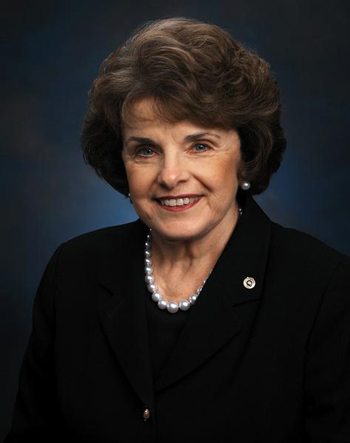December 21, 2020 - Washington - Senator Dianne Feinstein (D-Calif.) last week introduced the Addressing Climate Financial Risk Act, a bill that would improve the ability of federal regulators to  understand and mitigate risks from climate change within the financial system.
understand and mitigate risks from climate change within the financial system.
Climate change is increasing the frequency and severity of wildfires, flooding, droughts and other natural disasters and extreme weather events. The damage and risk generated by these events – in addition to changes needed to transition to a lower-carbon economy – threaten to severely disrupt real estate values in high-risk areas, dramatically change whole sectors of the economy and make insuring against risk increasingly unaffordable. These trends, in turn, threaten the stability of the U.S. financial system, which is why it is so important to ensure financial regulators approach them in a comprehensive way.
“Climate change is real, it’s happening now and it will have a profound effect on our financial system if we continue to do nothing,” said Senator Feinstein. “The cost of inaction has grown too high. We must act now to dramatically reduce carbon emissions, but we must also guard against the financial strain that we’re seeing because of climate change. And that means ensuring that federal financial regulators have expertise in climate financial risk and develop an approach to mitigate that risk.”
“We applaud Senator Dianne Feinstein for introducing this legislation that would help address the systemic risk climate change poses to our financial system,” said Steven M. Rothstein, managing director of the Ceres Accelerator for Sustainable Capital Markets. “Federal financial regulators across the country are beginning to act, and this bill would help get them there faster. It’s important to remember this is not about implementing a green agenda, but about keeping our economy and our people out of harm’s way. Risk is risk.”
“Fossil fuel-driven climate change impacts pose a systemic risk to U.S. financial institutions, the U.S. financial sector as a whole, and the global economy,” said Nicole Pinko, corporate analyst and engagement specialist, Climate & Energy Program at the Union of Concerned Scientists. “This bill is a first step in ensuring that climate-related financial risks are evaluated and addressed throughout the U.S. financial system, which can help assist in a just and equitable transition to a low-carbon economy that works for everyone.”
Provisions of the Addressing Climate Financial Risk Act:
- Establish an advisory committee on climate financial risk: The bill would establish a permanent committee on the Financial Stability Oversight Council (FSOC) made up of experts in climate science, climate economics and climate financial risk. The committee would advise FSOC in producing a report that would include recommendations on how to improve the ability of the U.S. financial regulatory system to identify and mitigate climate risk.
- Update supervisory guidance on climate risk: The bill would require federal bank and credit union regulatory agencies to update their supervisory guidance to include climate risk and to develop a strategy to identify and mitigate climate financial risk.
- Update non-bank designation guidance: The bill would require FSOC to specify how it will incorporate climate risk into its decisions about whether to designate risky non-bank financial institutions as requiring additional oversight by the Federal Reserve.
- Require a Federal Insurance Office (FIO) report on insurance regulation and climate risk: The insurance industry is more directly affected by climate risk than other areas of the financial system. This provision would require the FIO to produce a report on how to modernize and improve climate risk insurance regulation in the United States. The report would be modeled on FIO’s 2013 report on modernizing state insurance regulation.
- Improve global coordination: Climate change is a global problem that requires international coordination. This provision would provide a sense of Congress that U.S. financial regulators should join the Network for Greening the Financial System, formally join the Basel Committee’s Task Force on Climate-Related Risk and work with international regulators on climate financial risk to the extent possible.
Source: Senator Dianne Feinstein








